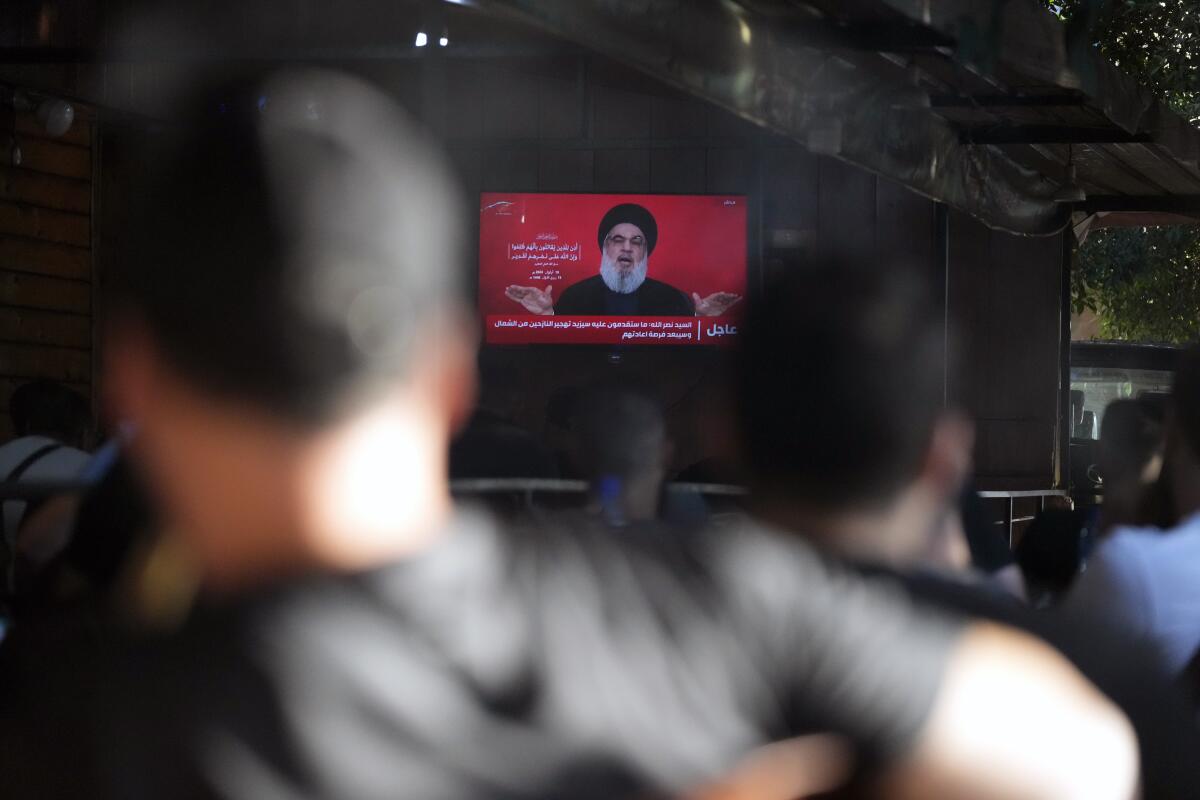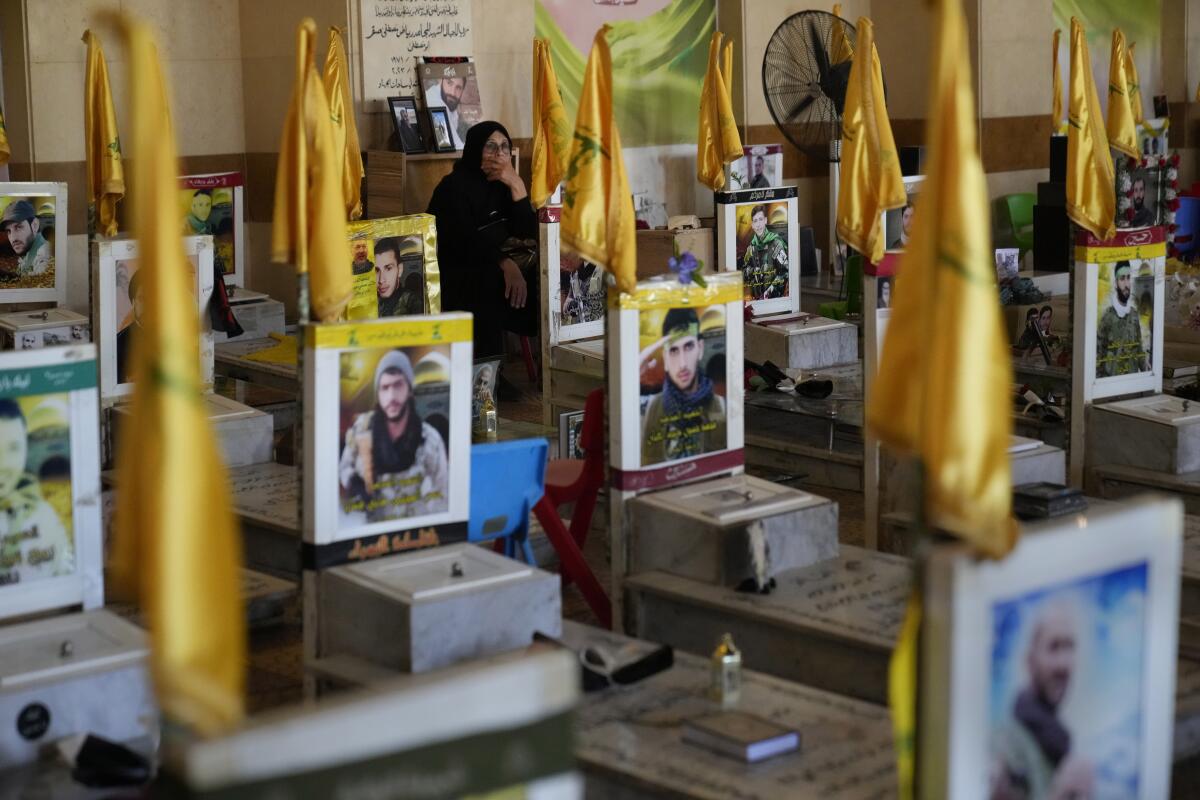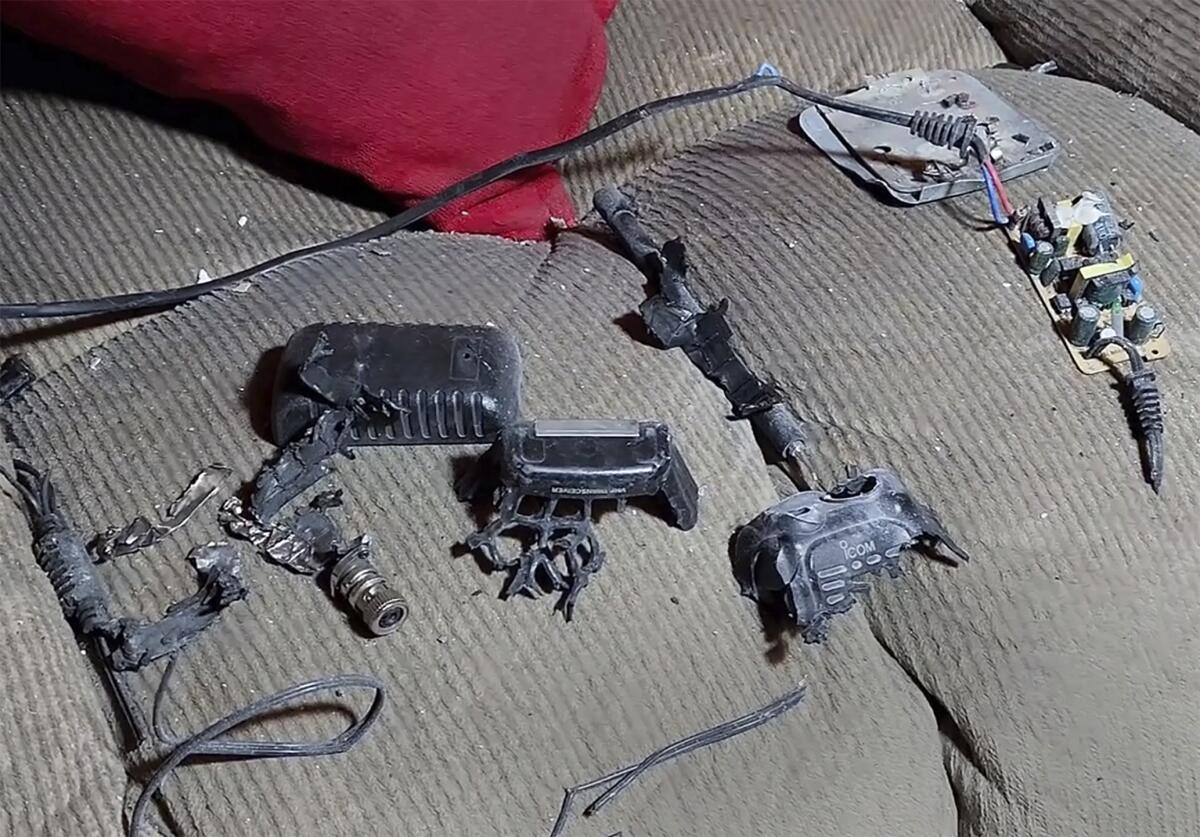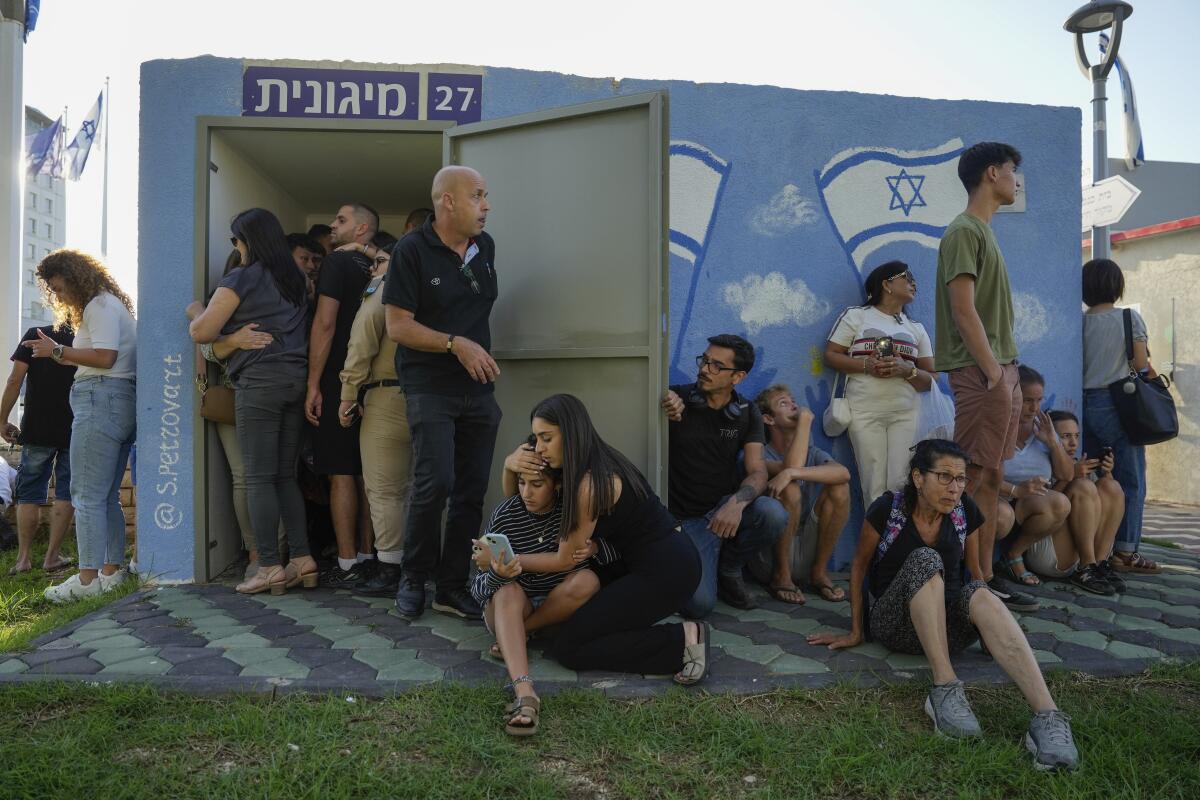Hezbollah head strikes defiant tone after ‘unprecedented blow’

- Share via
BEIRUT — With the rumble of Israeli warplanes buzzing overhead, Hezbollah leader Hassan Nasrallah accused Israel on Thursday of “crossing all restrictions, red lines and laws” with the two-day wave of deadly detonations of electronic devices.
Even as he vowed retaliation, Nasrallah acknowledged the attacks dealt “an unprecedented blow” to the group.
Nasrallah’s address was his first televised appearance after thousands of handheld pagers and walkie-talkies exploded Tuesday and Wednesday, killing 37 people and wounding some 3,000 others.

Israel has not claimed or denied responsibility for the attacks, but it is widely presumed to have carried them out. U.S. officials said they were given some details after the fact by Israel. It is believed Israel somehow intercepted a shipment of devices purchased by Hezbollah and packed them with explosives.
Nasrallah said the group has no intention of backing down. “This big and powerful blow did not and will not bring us down,” he said.
Amid fears the fighting will grow into a full-scale war between Israel and Lebanon, both sides continued their tit-for-tat air strikes Thursday.
The Israeli military announced it was striking targets inside Lebanon to “degrade Hezbollah’s terrorist capabilities and infrastructure.”
As Nasrallah spoke from an undisclosed location, there were none of the usual gatherings in Hezbollah-affiliated convention centers to watch — a measure of the heightened security exercised by the group in the wake of what many say to be the most significant security breach it has faced since its inception.
The attack involved the simultaneous detonation of some 5,000 pagers distributed among Hezbollah fighters and officials across the country. A day later, roughly 1,000 walkie-talkies blew up as well. Hezbollah had resorted to older communication technologies in a bid to evade Israeli surveillance of cellphones.

In recent days, Israel has repeatedly telegraphed a more aggressive stance toward Hezbollah. On Thursday, the Israeli military said its chief of staff, Lt. Gen. Herzi Halevi, had recently approved new plans for the northern conflict zone. A day earlier, Defense Minister Yoav Gallant declared that the conflict was entering a “new phase.”
Gallant said Thursday he had been in touch overnight with U.S. Defense Secretary Lloyd Austin about Israel’s “defense against Hezbollah threats.”
Nasrallah said technical and security committees were investigating the incident. He downplayed the effect of the attack on Hezbollah’s military leadership, saying higher-ranking commanders were unaffected because they were using older pagers.
Hostilities between Israel and Lebanon renewed after Hezbollah — an Iran-backed militant group and political party — launched rocket barrages into Israel on Oct. 8. Hezbollah said it attacked as a gesture of support for the Palestinian armed group Hamas, which has been fighting with Israel for nearly a year.
Although the fighting between Israel and Hezbollah has remained relatively limited, some 90,000 people in Lebanon’s south have been forced to flee their homes. In northern Israel, roughly 60,000 remain displaced.
Nasrallah said Hezbollah would continue to support Hamas.

“We say to [Israeli Prime Minister Benjamin] Netanyahu and Gallant, the Lebanese front will not stop before the aggression on Gaza stops,” Nasrallah said.
The two-day attacks seriously disrupted Hezbollah’s internal-communications abilities, but the group maintains a formidable arsenal of weapons.
Israeli analysts suggested that the electronic-device attacks were a prelude to a much-broader conflict.
“You don’t do something like that, hit thousands of people, and think war is not coming,” retired Brig. Gen. Amir Avivi, now a military analyst, told the Times of Israel.
Staff writer Bulos reported from Beirut and staff writer King from Tel Aviv.
More to Read
Sign up for Essential California
The most important California stories and recommendations in your inbox every morning.
You may occasionally receive promotional content from the Los Angeles Times.











